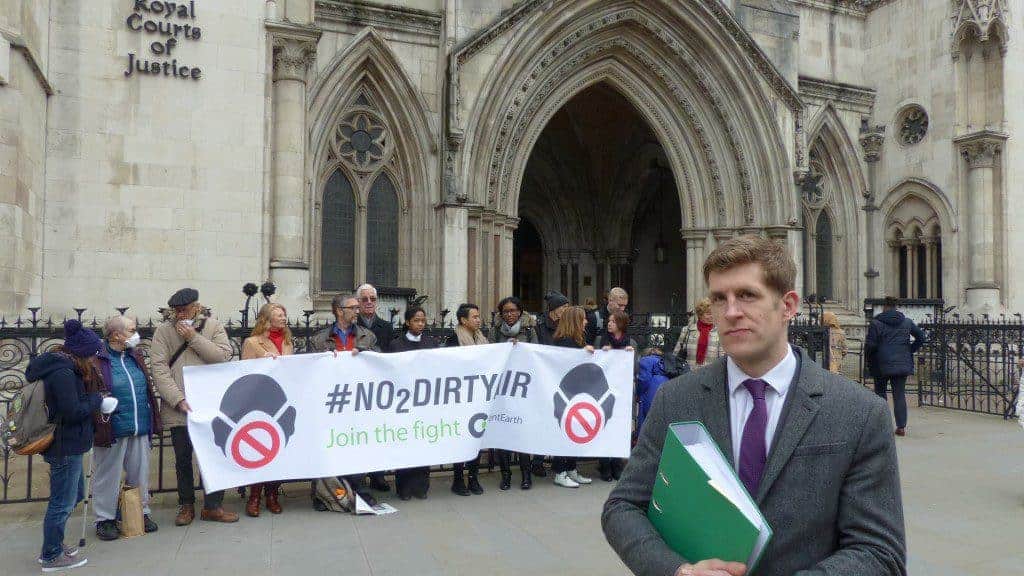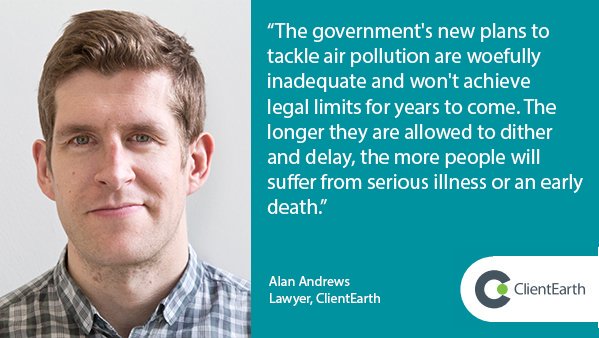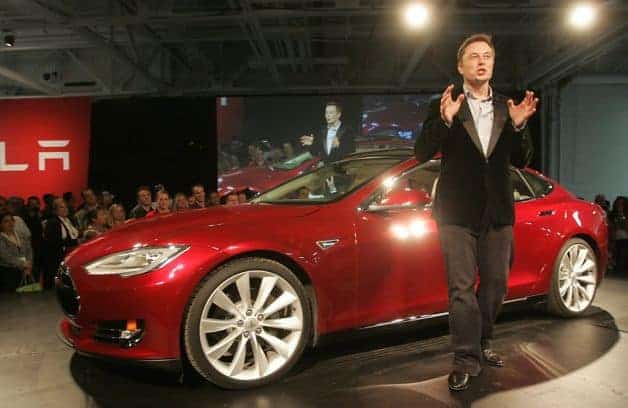Greenhouse Pioneer: Alan Andrews, ClientEarth

How do you take the government to court and win? Greenhouse PR talks to Alan Andrews, a lawyer from ClientEarth, to get the inside track.
In 2015 ClientEarth, the environmental law firm, took the UK government to the Supreme Court over its UK air quality strategy, supported with a high profile media strategy. This year it’s seeking judicial review.
What motivated you to leave the corporate law firm?
The environment has always been my focus and private law firms do not provide the opportunity to have that level of focus, so I left to do further qualifications in environmental law and then came across ClientEarth, where I have been ever since.
What is your greatest achievement to date?
Taking the government to the Supreme Court over its failure to uphold its legally binding commitment to acting on air pollution. And winning. We are going back again because the government has failed to act to ensure that the government meets its legal obligations to keep our air clean.
How does law complement the other drivers for a cleaner environment?
The great thing about my job is that it fills a void in the drive to behavioural change in the fight against climate change. Litigation allows best practice to be implemented; where there is a lack of political will to implement changes to protect and improve the environment, law steps in.
What are the challenges ClientEarth is facing in the coming months?
The next court case, which we hope will deliver the required action from government on air quality. Brexit could lead to weaker air pollution laws in the UK, in addition the European Union is a good source of best practice in behavioural change and policy successes. No one country is functioning well across all metrics in terms of air quality, Denmark for example, where 40 % of all journeys are by bicycle, suffers as too much of their domestic heating comes from wood burners. Germany was a trailblazer in terms of low emission zones but it’s NO2 emission levels are exceptionally high.
What can we, as individuals, do to make a difference?
As individuals, it is important that we collectively keep pressure on elected representatives. Emails and letters to MPs, MEPs and Sadiq Khan, the new London mayor, will ensure that the environment is front and centre of the political agenda. Air quality and climate change are both enormous challenges and require big solutions, which depend on government policy to set the agenda for behavioural change for both business and consumers.
The single biggest thing that individuals can do is not drive a diesel car.
If you were to win the mayoral election, what would you do to clean up London’s air?
Reducing the volume and intensity of traffic is the fastest way to improve air quality. Firstly, I would establish clean air zones that restrict access to vehicles in the most polluted areas of the city. Secondly, I would build proper cycle lanes that are physically separate from the roads, as we see in Amsterdam and Denmark. I would also ban HGVs from travelling in central London during rush hour; besides their emissions, they are responsible for more cycle deaths and serious injury than any other vehicle.
You cannot manage what you do not measure so providing Information and accurate data is central to tackling this problem, particularly as we cannot see air pollution; data will make it visible. In the same way that there are UV and pollen warnings, there need to be pollution warnings, particularly in London’s local news to highlight the most dangerous areas.
What’s the most inspirational project or product you’ve come across?
I am most inspired by Elon Musk, Tesla’s CEO, this pioneering brand is transforming our cars and the industry in such a way that it could bring about the demise of the internal combustion engine. It has the potential to be revolutionary.
Can you recommend a life- or game-changing book for our readers?
The book entitled ‘Sapiens’ by the Israeli author, Yuval Harari, examines the history of the human species and its impact on the environment. A mind-blowing book.
What do you listen to when you’re cooking dinner?
The BBC’s Six Music or sometimes a French Language Podcast as I still haven’t given up on the idea that I will be able to speak French when I am working in Brussels, despite the impeccable English that is spoken widely there.
What’s the best advice you’ve ever been given?
Check everything twice. Imperative as a lawyer.
Can you leave us with who’d be your Eco Hero?
Remo Klinger, a German lawyer from Berlin, who established the right to go to court over government’s inaction on its environmental legal obligations.
More information about ClientEarth and its campaign:
Readers can follow the progress of the case on Twitter: #No2DirtyAir. They can also donate to support their efforts.
In March 2016, it lodged papers at the High Court in London seeking judicial review and expect a court date within six months; the government’s inadequate action is resulting in levels of air pollution thought to cause an estimated 40,000 premature deaths every year in the UK.






